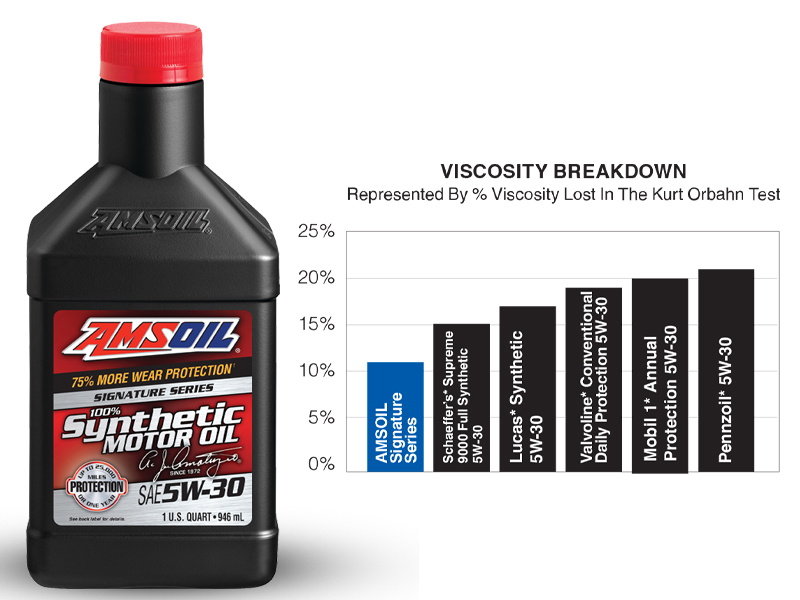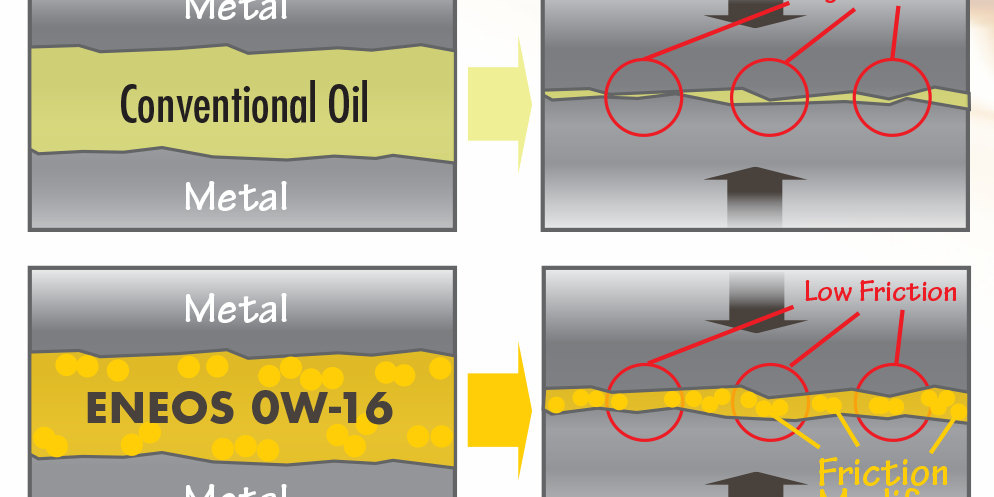Have you ever wondered why your car’s engine oil needs changing so often? Or why there are so many types of motor oil on the market?
The secret lies in something called viscosity. Understanding the viscosity of motor oil is crucial for the health of your engine. It affects how well your car performs and how long it lasts. You might be surprised to learn how this simple characteristic can impact your vehicle’s efficiency, fuel consumption, and even your wallet.
If you want to keep your car running smoothly and avoid costly repairs, it’s time to delve into the world of motor oil viscosity. Discover why this seemingly minor detail is a game-changer for your engine’s performance and longevity. Stick around to find out how choosing the right oil can make a significant difference in your driving experience.
Viscosity Defined
Understanding motor oil viscosity is crucial for vehicle maintenance. Viscosity refers to the oil’s resistance to flow. It determines how well the oil lubricates engine parts. Knowing viscosity helps choose the right oil for your car.
Motor oil with the correct viscosity ensures optimal engine performance. It protects moving parts from wear and tear. This leads to better fuel efficiency and engine longevity.
What Is Viscosity?
Viscosity is the measure of a fluid’s thickness. It shows how easily the oil flows at different temperatures. Thicker oils have higher viscosity. They flow slower than thinner oils.
How Viscosity Affects Oil Performance
Viscosity impacts engine lubrication. Proper viscosity ensures smooth engine operation. It prevents metal parts from grinding against each other. This reduces friction and heat.
Viscosity And Temperature
Oil viscosity changes with temperature. Cold temperatures can thicken oil. Hot conditions may thin it. Selecting oil with the right viscosity helps maintain performance in various climates.
Oil viscosity ratings guide your choice. Consult your vehicle’s manual for recommendations. Consider driving conditions and climate. The right viscosity enhances engine protection.

Credit: blog.amsoil.com
Role In Lubrication
Motor oil plays a crucial role in keeping your engine running smoothly, and its viscosity is a key factor in its effectiveness. Viscosity determines how easily the oil flows and coats engine parts, directly influencing the lubrication process. Without proper lubrication, your engine could suffer from increased wear and tear, leading to costly repairs. Understanding the importance of viscosity can make a real difference in maintaining your vehicle’s performance and longevity.
Reducing Friction
Think about the first time you rode a bicycle. The exhilaration of speed was often hampered by the annoying screeching sound from the chains. That’s friction, and your engine faces similar challenges. Proper viscosity reduces friction between moving parts, allowing them to glide smoothly over each other. Imagine your engine components working together without fighting against each other. The right motor oil viscosity ensures that parts are well-lubricated, minimizing friction and heat generation.
Choosing the right oil is like finding the perfect pair of running shoes. You need the right fit to run comfortably and efficiently. Similarly, selecting the correct viscosity for your engine ensures it operates smoothly, reducing unnecessary strain. You wouldn’t want your engine to work harder than it needs to, right?
Protecting Engine Components
Have you ever noticed how quickly things wear out when they’re not taken care of? Your engine parts are no different. Viscosity plays a protective role by creating a barrier between metal surfaces. This barrier prevents them from grinding against each other, reducing wear and tear.
Imagine oil as the bodyguard for your engine parts, shielding them from damage. Without adequate protection, your engine components could suffer premature wear, leading to expensive repairs. Just like you wouldn’t leave your valuables unprotected, your engine deserves the same care.
Are you aware that using the wrong viscosity can lead to engine damage? It’s like wearing sandals in the snow; it just doesn’t work. Ensuring the right viscosity helps your engine parts last longer, saving you time and money in the long run.
Impact On Engine Performance
The viscosity of motor oil plays a crucial role in engine performance. It affects how the oil flows through the engine. Proper viscosity ensures efficient lubrication, reducing friction and wear. This, in turn, impacts fuel economy and power output. Understanding these effects can help optimize engine performance.
Fuel Economy
Viscosity affects fuel economy significantly. Thicker oil increases resistance in the engine. This means the engine works harder, using more fuel. Conversely, oil that’s too thin may not protect engine parts well. Choosing the right viscosity helps maintain optimal fuel efficiency. This decision can save money over time. Every gallon counts.
Power Output
Power output also depends on oil viscosity. Thicker oil can reduce engine power. It creates more friction, which robs the engine of energy. Thinner oil flows more easily, boosting power output. But it must still protect engine components. The right balance ensures the engine delivers its best performance. Understanding this relationship is key to maximizing engine power.
Temperature Influence
Motor oil viscosity is crucial for engine protection and efficiency. It affects how the oil flows under different temperatures. Temperature variations can change how oil behaves. This impacts engine performance significantly.
Cold Weather Performance
Cold temperatures thicken motor oil. Thick oil struggles to circulate quickly. This slows engine start-up in winter. Engine parts face more friction and wear. Proper viscosity ensures smoother cold starts. It reduces strain on the engine.
Hot Weather Stability
Heat thins out motor oil. Thin oil may not protect engine parts well. High temperatures demand stable viscosity. This ensures the oil remains effective. Engines need protection from excessive heat. Right viscosity prevents overheating and damage.
Choosing The Right Viscosity
Selecting the correct viscosity for motor oil ensures engine efficiency and longevity. It influences lubrication, reducing friction and wear. Proper viscosity also aids in maintaining optimal engine temperature.
Choosing the right viscosity for your motor oil isn’t just a technical detail—it’s a crucial step in keeping your engine running smoothly. Viscosity determines how easily oil flows at different temperatures, affecting engine protection and performance. Whether you’re driving in hot summer months or chilly winter conditions, the right viscosity ensures your engine operates efficiently and stays protected. But how do you choose the right viscosity? Let’s break it down.Manufacturer Recommendations
Your vehicle’s manufacturer knows your engine best. They provide specific oil viscosity recommendations in the owner’s manual. These guidelines are based on extensive testing and are designed to ensure optimal performance and longevity for your engine. Trusting these recommendations can save you from future headaches and costly repairs. Have you checked your manual lately?Environmental Considerations
The climate you drive in plays a significant role in selecting motor oil viscosity. If you experience harsh winters, a lower viscosity oil will flow better in the cold, ensuring your engine starts smoothly. Conversely, in hotter climates, a higher viscosity oil can provide better protection against heat. Are you considering how your local weather impacts your engine’s needs? Choosing the right viscosity is about understanding your vehicle and your environment. By following manufacturer recommendations and considering environmental factors, you can make an informed choice. This decision isn’t just about today; it’s about ensuring your engine remains healthy for the long haul. Are you ready to make the right choice for your engine’s future?Viscosity And Engine Wear
Motor oil’s viscosity is crucial in reducing engine wear. It ensures smooth movement of engine parts, preventing friction and heat. Proper viscosity maintains engine efficiency and longevity, safeguarding your vehicle’s performance.
Viscosity and Engine Wear When you think about motor oil, viscosity might not be the first thing that comes to mind. Yet, it’s a critical factor in keeping your engine running smoothly. Viscosity, simply put, is the thickness of the oil, and it plays a crucial role in protecting your engine from wear and tear.Prevention Of Wear And Tear
Viscosity acts as a protective shield for your engine. Imagine a thin layer of oil coating every moving part, reducing friction. Without the right viscosity, parts could grind against each other, leading to increased wear. Selecting the correct viscosity is like choosing the right pair of shoes. Too tight, and you’ll be uncomfortable; too loose, and you risk tripping. Similarly, oil that’s too thick or too thin for your engine’s needs can lead to damage. Have you ever noticed how sluggish your car feels in winter? That’s often due to oil thickening in the cold. Choosing an oil with the right cold weather viscosity can prevent this.Extending Engine Life
The right viscosity doesn’t just prevent wear; it extends the life of your engine. Think of it as the fountain of youth for your car. By minimizing friction, it keeps your engine parts in top condition for longer. Oil that maintains its viscosity under high temperatures ensures that your engine remains protected even during intense driving conditions. This means less frequent repairs and a longer lifespan for your vehicle. Ask yourself, how much do you spend on engine repairs? Investing in the right motor oil viscosity can save you money in the long run by reducing the need for costly fixes. In the end, viscosity isn’t just a technical term; it’s a vital aspect of car maintenance. By understanding and choosing the right viscosity, you ensure your engine runs efficiently and lasts longer.Technological Advances
In today’s fast-paced world, technological advancements have transformed the way we maintain and enhance the performance of our vehicles. One key area where technology has made a significant impact is the development of motor oils. Understanding the importance of motor oil viscosity is crucial for ensuring your vehicle runs smoothly and efficiently. Modern innovations have not only improved the quality of motor oils but have also introduced new products that cater to specific engine needs. Let’s explore some of these technological breakthroughs that are changing the way you think about motor oil.
Synthetic Oils
Synthetic oils are a marvel of modern engineering. Unlike traditional mineral oils, synthetic oils are created in labs, offering you enhanced performance and protection. These oils are designed to be more stable across a wide range of temperatures. Imagine driving on a cold winter morning; synthetic oil doesn’t thicken like conventional oil. This means your engine starts up more smoothly and efficiently. On a scorching summer day, synthetic oils maintain their viscosity, preventing engine wear and tear. By using synthetic oils, you’re investing in longevity and reliability for your vehicle.
Viscosity Modifiers
Viscosity modifiers are another technological breakthrough that plays a crucial role in motor oil performance. These additives adjust the thickness of motor oil depending on the temperature and conditions. Think about how versatile your engine oil can be with these modifiers. They ensure that your oil is thin enough to flow smoothly at lower temperatures while maintaining enough thickness to protect at higher temperatures. How often do you think about the impact of temperature on your engine oil? With viscosity modifiers, you can rest easy knowing your engine is protected regardless of weather changes.
Consider how technology has made it easier for you to choose the right motor oil. With synthetic oils and viscosity modifiers, you’re not just picking a product; you’re selecting a solution tailored to your vehicle’s needs. As technology continues to evolve, it will be exciting to see what further advancements await in the realm of motor oil. Are you ready to embrace the future of engine care?

Credit: www.eneos.us
Economic And Environmental Impact
Motor oil viscosity significantly affects engine performance and fuel efficiency, influencing economic and environmental outcomes. Lower viscosity can reduce friction, improving fuel economy and reducing emissions. Conversely, high viscosity may protect engine parts but can lead to increased fuel consumption and emissions, impacting costs and the environment.
Understanding the viscosity of motor oil is crucial for both economic and environmental reasons. The right viscosity ensures that your engine runs smoothly, leading to better fuel efficiency and reduced emissions. This means that not only does your wallet benefit, but so does the planet. Let’s explore how this plays out in practical terms.Cost Efficiency
Choosing the right motor oil viscosity can save you money. A well-lubricated engine operates efficiently, consuming less fuel. Imagine you’re on a long road trip; using the correct oil means fewer stops at gas stations and more savings in your pocket. Improper viscosity can lead to engine wear, resulting in costly repairs. You wouldn’t want to face unexpected expenses due to engine damage, right? Opt for oil with the right viscosity and enjoy fewer maintenance hassles.Reduced Emissions
Using the correct motor oil viscosity helps reduce harmful emissions. When your engine runs efficiently, it burns fuel more completely. This means fewer pollutants are released into the environment. Consider the impact of millions of vehicles on the road. Each one using the right oil can significantly decrease the collective carbon footprint. You have the power to contribute positively to this effort with a simple choice. Have you ever thought about how your everyday decisions affect the environment? Selecting the right motor oil viscosity is a small step that makes a big difference. Why not start today by checking your vehicle’s oil requirements and choosing wisely?
Credit: precisionlubrication.com
Conclusion
Understanding motor oil viscosity is crucial for engine health. It ensures smooth engine operation and reduces wear. Proper viscosity helps maintain optimal performance in varied temperatures. Choosing the right viscosity can extend engine life. It also improves fuel efficiency. Always check your vehicle’s manual for recommendations.
This ensures you use the correct oil type. Regular oil checks and changes are vital. They help prevent potential engine problems. Remember, good oil choices mean better vehicle performance. So, keep an eye on your oil’s viscosity. Your engine will thank you for it.
